Books on consciousness
A list of books relating to the hard problem of consciousness. Regularly updated cos I keep finding new stuff all the time.
A list of books relating to the hard problem of consciousness. Regularly updated cos I keep finding new stuff all the time.
1996
 Daniel L. Schacter
Daniel L. Schacter
Searching For Memory: The Brain, The Mind, And The Past
(Basic Books 1996)
There may be nothing more important to human beings than our ability to enshrine experience and recall it. Schacter explains how and why recent scientific breakthroughs may change our understanding of everything from false memory and amnesia to Alzheimer’s disease, with fascinating firsthand accounts of patients with striking—and sometimes bizarre—amnesias resulting from brain injury or psychological trauma. See Basic Books | Amazon | Google
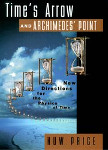 Huw Price
Huw Price
Time’s Arrow and Archimedes’ Point
(Oxford 1996)
Why is the future so different from the past? Why does the past affect the future and not the other way around? What does quantum mechanics really tell us about the world? In this important and accessible book, Price throws fascinating new light on some of the great mysteries of modern physics, and connects them in a wholly original way. He urges physicists, philosophers, and anyone who has ever pondered the mysteries of time to look at the world from the fresh perspective of Archimedes’ Point and gain a deeper understanding of ourselves, the universe around us, and our own place in time. See Oxford | Amazon | Google
 Rocco J. Gennaro
Rocco J. Gennaro
Mind and Brain: A Dialogue on the Mind-Body Problem
(Hackett 1996)
This lively dialogue provides an overview of the mind-body problem suitable for both introductory students and those with some background in the philosophy of mind. Covers a wide range of topics from immortality and Descartes’ ‘Divisibility Argument’ to the nature of inductive knowledge and the ‘Inverted Spectrum Argument.’ See Hackett | Amazon | Google
 Evan Fales
Evan Fales
A Defense of the Given
(Rowman & Littlefield 1996)
What is the connection between experience and knowledge? Fales defends the contested idea that sense experience can be used to justify basic beliefs. He explores what it is for a belief to be self-evident and examines implications for his argument of Gestalt psychology and visual phenomena and illusions. Fales diverges from classical foundationalism, however, arguing that basic beliefs are often only probable, rather than infallible. See Rowman & Littlefield | Amazon | Google
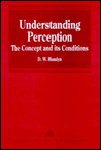 D. W. Hamlyn
D. W. Hamlyn
Understanding Perception: The Concept and its Conditions
(Avebury 1996)
This book is meant to sum up my thinking about perception, which began at least as early as my first book, The Psychology of Perception, which was published in 1957. In that sense it is a product of something like a life-time of thinking abut the subject. See Google | Amazon
 John W. Yolton
John W. Yolton
Perception and Reality: A History from Descartes to Kant
(Cornell 1996)
Building on his seminal 1984 study, Perceptual Acquaintance from Descartes to Reid, Yolton examines the theories of perception implicit in 17th and 18th century philosophy, centered on the question: How is knowledge of the body possible? In contrast to commonsense realism, which suggests that the world is as it appears to be, a more complex theory developed throughout this period. Yolton traces its evolution from Descartes to Kant, via Arnauld, Malebranche, Locke, Berkeley, and Hume. See Google | Questia
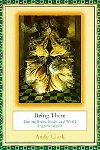 Andy Clark
Andy Clark
Being There: Putting Brain, Body, and World Together Again
(MIT 1996)
Brain, body, and world are united in a complex dance of circular causation and extended computational activity. Clark weaves these threads into a pleasing whole and addresses foundational questions concerning the new tools and techniques needed to make sense of the emerging sciences of the embodied mind. He addresses a broad range of adaptive behaviors, from cockroach locomotion to the role of linguistic artifacts in higher-level thought. See MIT | Amazon | Google
 Igor Aleksander
Igor Aleksander
Impossible Minds: My Neurons, My Consciousness
(Imperial College Press 1996)
This book was written to satisfy the curiosity each of us has about our own consciousness. It takes the view that the neurons in our heads are the source of consciousness and attempts to explain how this happens. This book is also a story – of a land where people think they are automata without much in the way of consciousness, a story of cormorants and cliffs by the sea, a story of what it might be like to be a conscious machine. See Amazon | Google
 Sydney Shoemaker
Sydney Shoemaker
The First-Person Perspective and Other Essays
(Cambridge 1996)
This collection deals with the way in which we know our own minds. Shoemaker opposes the “inner sense” conception of introspective self-knowledge. He defends the view that perceptual and sensory states have nonrepresentational features – “qualia” – that determine what it is like to have them. Other topics covered are the unity of consciousness, and the idea that the “first-person perspective” gives a privileged route to philosophical understanding of the nature of mind. See Cambridge | Google
 Daniel C. Dennett
Daniel C. Dennett
Kinds Of Minds: Toward An Understanding Of Consciousness
(Basic Books 1996)
Can we know what is in someone else’s mind? Can a woman really know what it is like to be a man? What experiences does a baby have during childbirth? Could a robot, if it were fancy enough, be conscious? Blending ideas from philosophy, artificial intelligence, and neurobiology, Dennett explains how, by figuring out how our minds work, we can learn more about ourselves and others. See Google (2008 edition)
 Rocco J. Gennaro
Rocco J. Gennaro
Consciousness and Self-consciousness: A Defense of the Higher-order Thought Theory of Consciousness
(John Benjamins 1996)
Following the lead of David Rosenthal, Gennaro argues that what makes a mental state conscious is the presence of a suitable higher-order thought directed at it. The controversial claim that “consciousness entails self-consciousness” is vigorously defended. Gennaro draws on recent work in cognitive science, perception, artificial intelligence, neuropsychology and psychopathology and also makes extensive use of numerous Kantian insights. See John Benjamins | Google
 John McDowell
John McDowell
Mind and World
(Harvard 1996, with a new introduction)
Modern philosophy finds it difficult to give a satisfactory picture of the place of minds in the world. In this book, based on the 1991 John Locke Lectures, one of the most distinguished philosophers writing today offers his diagnosis of this difficulty and points to a cure. In doing so, he delivers the most complete and ambitious statement to date of his own views. See Harvard | Google
 David Chalmers
David Chalmers
The Conscious Mind
(Oxford 1996)
David Chalmers shakes up the reductionist world of neurological research by asserting that scientists need to approach conscious experience as a basic, nonphysical component of the world, similar to time, space, and matter. See Oxford | Google | Amazon
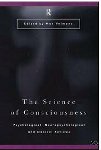 Max Velmans (ed.)
Max Velmans (ed.)
The Science of Consciousness
(Routledge 1996)
In this book, leading researchers examine how consciousness is being investigated in the key areas of cognitive psychology, neuropsychology and clinical psychology. Every chapter is written by an expert in the field. See Routledge | Google | Amazon | Review by Patrice Terrier (pdf)
 E. J. Lowe
E. J. Lowe
Subjects of Experience
(Cambridge 1996)
Lowe defends a substantival theory of the self as an enduring and irreducible entity – a theory which is unashamedly committed to a distinctly non-Cartesian dualism of self and body. See Amazon | Google Books.
 Kathleen Akins (ed.)
Kathleen Akins (ed.)
Perception
(Oxford 1996)
This volume examines the role of perception in cognitive psychology in light of recent events. It focuses on fundamental questions about the nature of visual perception, specifically concerning the form and content of visual representations. (Vancouver studies in cognitive science, volume 5.) See Oxford | Google | Amazon
 William G. Lycan
William G. Lycan
Consciousness and Experience
(MIT 1996)
The mind has no special properties not exhausted by its representational properties and the functional organization of its components. Once representation is understood, I do not think there will be any “problem of consciousness” left. See MIT | Amazon | Google Books
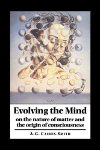 A. Graham Cairns-Smith
A. Graham Cairns-Smith
Evolving the Mind: On the Nature of Matter and the Origin of Consciousness
(Cambridge 1996)
Cairns-Smith explores how ideas about the mind evolved in science and how the mind itself evolved in Nature. Particularly compelling is his synthesis of a wide range of disciplines (physics, molecular biology, brain science, and evolution) bringing science to the brink of a unified theory of consciousness. Written in a straightforward, conversational style, few readers will be able to resist the conclusion that we are closing in on a scientific theory of consciousness. See Cambridge | Google
 Norton Nelkin
Norton Nelkin
Consciousness and the Origins of Thought
(Cambridge 1996)
A comprehensive and broadly rationalist theory of the mind which continually tests itself against experimental data. Taking issue with both empiricists and externalists, Nelkin argues that perception is cognitive, constructive and proposition-like, and that meaning is determined “in the head.” He also explains how we acquire some of our most basic concepts, including that of self and other minds. See Cambridge | Google

Searching For Memory: The Brain, The Mind, And The Past
(Basic Books 1996)
There may be nothing more important to human beings than our ability to enshrine experience and recall it. Schacter explains how and why recent scientific breakthroughs may change our understanding of everything from false memory and amnesia to Alzheimer’s disease, with fascinating firsthand accounts of patients with striking—and sometimes bizarre—amnesias resulting from brain injury or psychological trauma. See Basic Books | Amazon | Google

Time’s Arrow and Archimedes’ Point
(Oxford 1996)

Why is the future so different from the past? Why does the past affect the future and not the other way around? What does quantum mechanics really tell us about the world? In this important and accessible book, Price throws fascinating new light on some of the great mysteries of modern physics, and connects them in a wholly original way. He urges physicists, philosophers, and anyone who has ever pondered the mysteries of time to look at the world from the fresh perspective of Archimedes’ Point and gain a deeper understanding of ourselves, the universe around us, and our own place in time. See Oxford | Amazon | Google

Mind and Brain: A Dialogue on the Mind-Body Problem
(Hackett 1996)
This lively dialogue provides an overview of the mind-body problem suitable for both introductory students and those with some background in the philosophy of mind. Covers a wide range of topics from immortality and Descartes’ ‘Divisibility Argument’ to the nature of inductive knowledge and the ‘Inverted Spectrum Argument.’ See Hackett | Amazon | Google

A Defense of the Given
(Rowman & Littlefield 1996)
What is the connection between experience and knowledge? Fales defends the contested idea that sense experience can be used to justify basic beliefs. He explores what it is for a belief to be self-evident and examines implications for his argument of Gestalt psychology and visual phenomena and illusions. Fales diverges from classical foundationalism, however, arguing that basic beliefs are often only probable, rather than infallible. See Rowman & Littlefield | Amazon | Google

Understanding Perception: The Concept and its Conditions
(Avebury 1996)
This book is meant to sum up my thinking about perception, which began at least as early as my first book, The Psychology of Perception, which was published in 1957. In that sense it is a product of something like a life-time of thinking abut the subject. See Google | Amazon

Perception and Reality: A History from Descartes to Kant
(Cornell 1996)
Building on his seminal 1984 study, Perceptual Acquaintance from Descartes to Reid, Yolton examines the theories of perception implicit in 17th and 18th century philosophy, centered on the question: How is knowledge of the body possible? In contrast to commonsense realism, which suggests that the world is as it appears to be, a more complex theory developed throughout this period. Yolton traces its evolution from Descartes to Kant, via Arnauld, Malebranche, Locke, Berkeley, and Hume. See Google | Questia

Being There: Putting Brain, Body, and World Together Again
(MIT 1996)

Brain, body, and world are united in a complex dance of circular causation and extended computational activity. Clark weaves these threads into a pleasing whole and addresses foundational questions concerning the new tools and techniques needed to make sense of the emerging sciences of the embodied mind. He addresses a broad range of adaptive behaviors, from cockroach locomotion to the role of linguistic artifacts in higher-level thought. See MIT | Amazon | Google

Impossible Minds: My Neurons, My Consciousness
(Imperial College Press 1996)
This book was written to satisfy the curiosity each of us has about our own consciousness. It takes the view that the neurons in our heads are the source of consciousness and attempts to explain how this happens. This book is also a story – of a land where people think they are automata without much in the way of consciousness, a story of cormorants and cliffs by the sea, a story of what it might be like to be a conscious machine. See Amazon | Google

The First-Person Perspective and Other Essays
(Cambridge 1996)

This collection deals with the way in which we know our own minds. Shoemaker opposes the “inner sense” conception of introspective self-knowledge. He defends the view that perceptual and sensory states have nonrepresentational features – “qualia” – that determine what it is like to have them. Other topics covered are the unity of consciousness, and the idea that the “first-person perspective” gives a privileged route to philosophical understanding of the nature of mind. See Cambridge | Google

Kinds Of Minds: Toward An Understanding Of Consciousness
(Basic Books 1996)

Can we know what is in someone else’s mind? Can a woman really know what it is like to be a man? What experiences does a baby have during childbirth? Could a robot, if it were fancy enough, be conscious? Blending ideas from philosophy, artificial intelligence, and neurobiology, Dennett explains how, by figuring out how our minds work, we can learn more about ourselves and others. See Google (2008 edition)

Consciousness and Self-consciousness: A Defense of the Higher-order Thought Theory of Consciousness
(John Benjamins 1996)
Following the lead of David Rosenthal, Gennaro argues that what makes a mental state conscious is the presence of a suitable higher-order thought directed at it. The controversial claim that “consciousness entails self-consciousness” is vigorously defended. Gennaro draws on recent work in cognitive science, perception, artificial intelligence, neuropsychology and psychopathology and also makes extensive use of numerous Kantian insights. See John Benjamins | Google

Mind and World
(Harvard 1996, with a new introduction)
Modern philosophy finds it difficult to give a satisfactory picture of the place of minds in the world. In this book, based on the 1991 John Locke Lectures, one of the most distinguished philosophers writing today offers his diagnosis of this difficulty and points to a cure. In doing so, he delivers the most complete and ambitious statement to date of his own views. See Harvard | Google

The Conscious Mind
(Oxford 1996)
David Chalmers shakes up the reductionist world of neurological research by asserting that scientists need to approach conscious experience as a basic, nonphysical component of the world, similar to time, space, and matter. See Oxford | Google | Amazon

The Science of Consciousness
(Routledge 1996)
In this book, leading researchers examine how consciousness is being investigated in the key areas of cognitive psychology, neuropsychology and clinical psychology. Every chapter is written by an expert in the field. See Routledge | Google | Amazon | Review by Patrice Terrier (pdf)

Subjects of Experience
(Cambridge 1996)
Lowe defends a substantival theory of the self as an enduring and irreducible entity – a theory which is unashamedly committed to a distinctly non-Cartesian dualism of self and body. See Amazon | Google Books.

Perception
(Oxford 1996)
This volume examines the role of perception in cognitive psychology in light of recent events. It focuses on fundamental questions about the nature of visual perception, specifically concerning the form and content of visual representations. (Vancouver studies in cognitive science, volume 5.) See Oxford | Google | Amazon

Consciousness and Experience
(MIT 1996)
The mind has no special properties not exhausted by its representational properties and the functional organization of its components. Once representation is understood, I do not think there will be any “problem of consciousness” left. See MIT | Amazon | Google Books

Evolving the Mind: On the Nature of Matter and the Origin of Consciousness
(Cambridge 1996)
Cairns-Smith explores how ideas about the mind evolved in science and how the mind itself evolved in Nature. Particularly compelling is his synthesis of a wide range of disciplines (physics, molecular biology, brain science, and evolution) bringing science to the brink of a unified theory of consciousness. Written in a straightforward, conversational style, few readers will be able to resist the conclusion that we are closing in on a scientific theory of consciousness. See Cambridge | Google

Consciousness and the Origins of Thought
(Cambridge 1996)
A comprehensive and broadly rationalist theory of the mind which continually tests itself against experimental data. Taking issue with both empiricists and externalists, Nelkin argues that perception is cognitive, constructive and proposition-like, and that meaning is determined “in the head.” He also explains how we acquire some of our most basic concepts, including that of self and other minds. See Cambridge | Google
Menu
 What’s a logical paradox?
What’s a logical paradox? Achilles & the tortoise
Achilles & the tortoise The surprise exam
The surprise exam Newcomb’s problem
Newcomb’s problem Newcomb’s problem (sassy version)
Newcomb’s problem (sassy version) Seeing and being
Seeing and being Logic test!
Logic test! Philosophers say the strangest things
Philosophers say the strangest things Favourite puzzles
Favourite puzzles Books on consciousness
Books on consciousness Philosophy videos
Philosophy videos Phinteresting
Phinteresting Philosopher biographies
Philosopher biographies Philosopher birthdays
Philosopher birthdays Draft
Draftbarang 2009-2024  wayback machine
wayback machine
 wayback machine
wayback machine